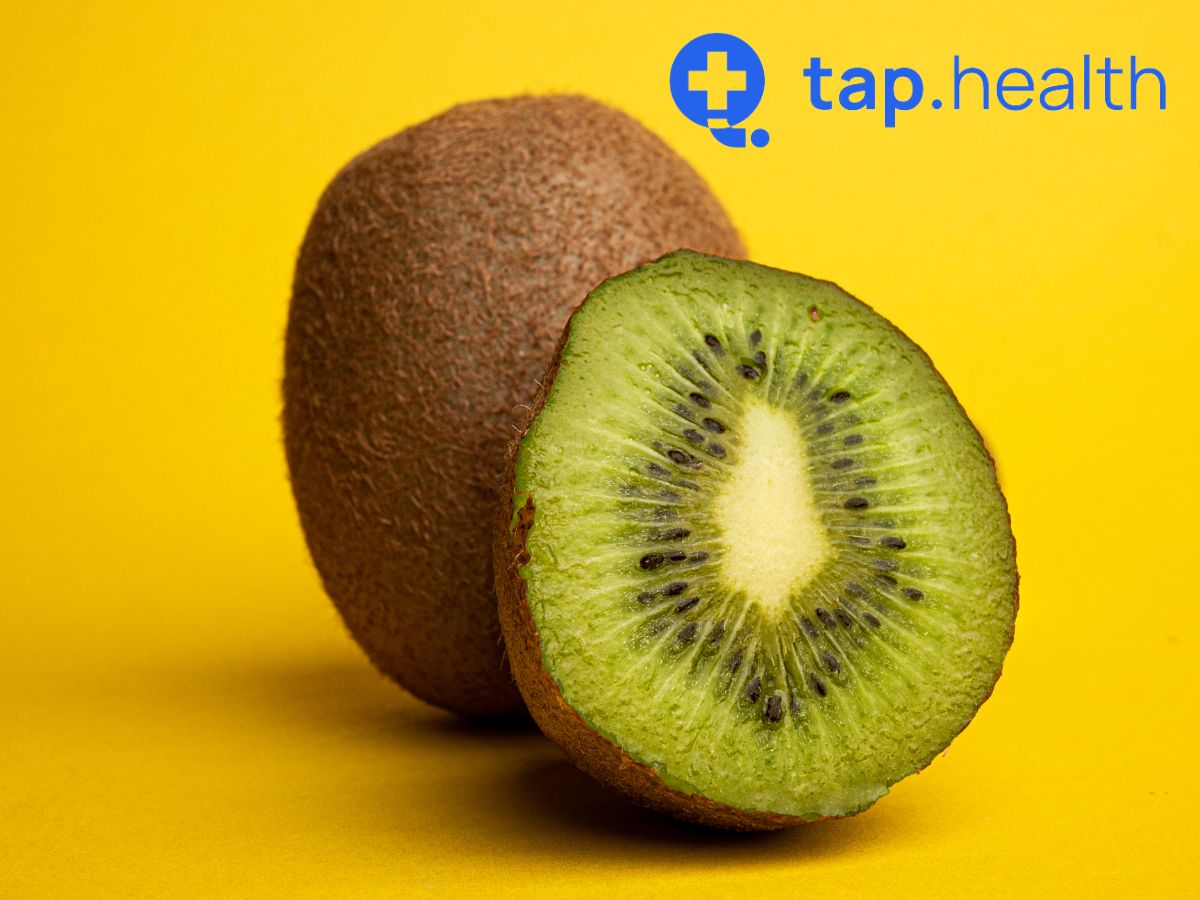Diabetes is a chronic condition that requires careful management of blood sugar levels. For individuals with diabetes, it is essential to have a well-balanced diet that includes fruits rich in nutrients and low in sugar. Kiwi fruit, also known as the Chinese gooseberry, is a popular choice among fruit enthusiasts due to its vibrant green color and unique taste. But is kiwi fruit good for diabetics? Let’s explore the benefits and side effects of including kiwi fruit in a diabetic diet.
Glycemic Index of Kiwi Fruit: What You Need to Know
The glycemic index (GI) is a measure of how quickly a particular food can raise blood sugar levels. Generally, foods with a low GI are considered more suitable for individuals with diabetes. Kiwi fruit has a relatively low GI, ranging between 47-58. This means that kiwi fruit causes a slower and more gradual increase in blood sugar levels compared to high GI fruits or foods.
While the glycemic index is a helpful tool, it is important to note that it should not be the sole determinant when making dietary choices. Other factors such as portion size, overall carbohydrate content, and individual metabolism should also be considered.
Additionally, kiwi fruit is not only low in GI but also packed with essential nutrients. It is a rich source of vitamin C, vitamin K, vitamin E, and fiber. Vitamin C is known for its antioxidant properties and its role in supporting the immune system. Vitamin K plays a crucial role in blood clotting and bone health, while vitamin E is a powerful antioxidant that helps protect cells from damage.
Moreover, the fiber content in kiwi fruit aids in digestion and promotes a feeling of fullness, which can be beneficial for weight management. Including kiwi fruit in your diet can be a delicious way to boost your nutrient intake while keeping blood sugar levels stable.
Nutritional Benefits of Kiwi Fruit for Diabetics
Kiwi fruit is packed with essential vitamins and minerals that provide numerous health benefits. One medium-sized kiwi fruit contains approximately 41 calories, making it a suitable low-calorie snack option for individuals with diabetes. Additionally, kiwi fruit is an excellent source of dietary fiber, which aids in regulating blood sugar levels, promoting digestive health, and preventing constipation.
Moreover, kiwi fruit is a rich source of vitamin C, providing more than double the recommended daily intake in a single serving. This antioxidant vitamin plays a crucial role in strengthening the immune system, reducing the risk of cardiovascular diseases, and supporting collagen production for healthy skin.
Furthermore, kiwi fruit contains various other nutrients such as vitamin K, vitamin E, potassium, and folate, which contribute to overall good health.
Another significant benefit of kiwi fruit for diabetics is its low glycemic index (GI) value. The GI is a measure of how quickly a food raises blood sugar levels. Kiwi fruit has a low GI, which means it releases glucose into the bloodstream slowly, helping to prevent spikes in blood sugar levels. This makes it a suitable fruit choice for individuals looking to manage their blood sugar levels effectively.
In addition to its nutritional value, kiwi fruit is also known for its potential health benefits beyond diabetes management. Some studies suggest that the bioactive compounds found in kiwi fruit may have anti-inflammatory and antioxidant properties, which could help reduce the risk of chronic diseases such as cancer and heart disease. Including kiwi fruit in a balanced diet can be a delicious way to support overall health and well-being.
How Kiwi Fruit Affects Blood Sugar?
When it comes to managing diabetes, understanding how different foods affect blood sugar levels is crucial. While kiwi fruit does have carbohydrates, namely natural sugars, it also contains dietary fiber that can help regulate blood sugar levels.
The fiber content in kiwi fruit slows down the absorption of sugars into the bloodstream, preventing sudden spikes in blood sugar levels. This gradual release of sugars provides a steady supply of energy to the body, avoiding rapid fluctuations in blood sugar.
However, it is important to keep in mind that individual responses to kiwi fruit may vary. Monitoring blood sugar levels after consuming kiwi fruit is recommended to determine its impact on personal blood glucose levels.
In addition to its impact on blood sugar levels, kiwi fruit is a nutritional powerhouse, packed with essential vitamins and minerals. It is a rich source of vitamin C, which is known for its immune-boosting properties and its role in collagen production for healthy skin. Kiwi fruit also contains vitamin K, which is important for blood clotting and bone health.
Furthermore, kiwi fruit is a good source of antioxidants, such as lutein and zeaxanthin, which are beneficial for eye health. These antioxidants help protect the eyes from age-related macular degeneration and other eye diseases.
Is Kiwi Fruit Good for Diabetes?
Overall, kiwi fruit can be a beneficial addition to a diabetic diet when consumed in moderation and as part of a well-balanced meal plan. Its low glycemic index, high fiber content, and rich nutritional profile make it a favorable fruit choice for individuals with diabetes.
However, it’s important to note that while kiwi fruit can be a healthy option for managing blood sugar levels, portion control is key. Consuming large quantities of any fruit, including kiwi, can still lead to spikes in blood sugar levels. Therefore, it’s best to enjoy kiwi fruit as part of a varied diet that includes a range of fruits and vegetables.
In addition to its benefits for diabetes management, kiwi fruit is also a good source of essential nutrients such as vitamin C, vitamin K, vitamin E, and potassium. Vitamin C, in particular, is known for its antioxidant properties, which can help boost the immune system and protect cells from damage caused by free radicals. Vitamin K plays a crucial role in blood clotting and bone health, while vitamin E is important for skin health and cell function.
Benefits of Kiwi for Diabetics
Adding kiwi fruit to your diet can offer several benefits for individuals with diabetes:
1. Blood Sugar Regulation:
The high fiber content in kiwi fruit aids in regulating blood sugar levels, contributing to better diabetes management.
2. Weight Management:
Kiwi fruit has a low-calorie content, making it a suitable snack option for weight-conscious individuals. It provides a nutritious alternative to unhealthy, high-calorie snacks.
3. Heart Health:
The antioxidants and fiber in kiwi fruit help lower the risk of cardiovascular diseases, which individuals with diabetes are more prone to.
4. Immune Support:
Kiwi fruit’s high vitamin C content strengthens the immune system, guarding against illnesses and infections.
Furthermore, kiwi fruit is a good source of potassium, which is essential for maintaining healthy blood pressure levels. For individuals with diabetes, managing blood pressure is crucial in reducing the risk of complications such as heart disease and stroke. Including potassium-rich foods like kiwi in your diet can support overall heart health.
In addition to its nutritional benefits, kiwi fruit is also known for its digestive properties. The enzymes present in kiwi, such as actinidin, can aid in the digestion of proteins. This can be particularly beneficial for individuals with diabetes who may experience digestive issues. By incorporating kiwi fruit into your meals, you not only benefit from its vitamins and antioxidants but also support your digestive system’s overall health.
How many Kiwi Can a Diabetic Eat?
While kiwi fruit is undoubtedly packed with beneficial nutrients, portion control is still essential, especially for individuals with diabetes. Consuming an excessive amount of any food can lead to an imbalance in blood sugar levels.
A general recommendation is to consume two medium-sized kiwi fruits as a single serving. However, it is important to consider personal carbohydrate targets and daily calorie intake when determining portion sizes. Working with a healthcare professional or a registered dietitian can help determine the suitable portion size for individual needs.
It’s worth noting that kiwi fruit is an excellent source of vitamin C, with just one medium-sized kiwi providing more than the recommended daily intake for adults. In addition to vitamin C, kiwis also contain dietary fiber, which can aid in digestion and help regulate blood sugar levels. The combination of these nutrients makes kiwi a great choice for individuals looking to manage their diabetes while still enjoying a sweet treat.
For those concerned about the glycemic index of kiwi fruit, rest assured that kiwis have a low to moderate glycemic index, meaning they are less likely to cause a rapid spike in blood sugar levels. This makes them a suitable option for individuals with diabetes when consumed in appropriate portions. Remember, moderation is key when incorporating any fruit into a diabetic meal plan, and it’s always best to consult with a healthcare provider for personalized guidance.
Incorporating Kiwi Fruit into a Balanced Diabetic Meal Plan
Integrating kiwi fruit into a well-balanced diabetic meal plan can be both delicious and nutritious. Kiwi fruit is not only low in calories but also packed with essential nutrients like vitamin C, vitamin K, and fiber, making it a great choice for individuals managing diabetes.
Here are a few more creative ways to include kiwi fruit in your diabetic meal plan:
- Breakfast: Start your day with a nutritious breakfast by adding sliced kiwi fruit to your oatmeal or whole grain cereal. The natural sweetness of kiwi will enhance the flavor of your breakfast without causing a spike in blood sugar levels.
- Yogurt Parfait: Layer Greek yogurt with diced kiwi fruit, nuts, and a sprinkle of cinnamon for a satisfying and balanced snack or dessert option. The combination of protein from the yogurt and fiber from the kiwi will help keep you full and satisfied.
- Grilled Chicken and Kiwi Skewers: For a savory twist, try grilling kiwi fruit along with chicken or shrimp on skewers. The caramelization of the kiwi adds a unique flavor profile to your meal while providing a good source of vitamin E and antioxidants.
- Homemade Salsa: Dice kiwi fruit and combine it with tomatoes, onions, cilantro, and a squeeze of lime juice to create a refreshing salsa. This versatile condiment can be served with grilled fish or whole grain chips for a tasty and diabetic-friendly appetizer.
FAQs on Is Kiwi Fruit Good for Diabetics?
1: Can kiwi fruit lower blood sugar levels?
A: While kiwi fruit has a low glycemic index and contains fiber, which may help regulate blood sugar levels, it is important to monitor blood glucose responses individually.
Q: Can I eat kiwi fruit if I have type 2 diabetes?
A: Yes, kiwi fruit can be included as part of a healthy, balanced diet for individuals with type 2 diabetes. However, it is essential to consider individual dietary requirements and consult with a healthcare professional.
Q: Are there any side effects of eating kiwi fruit for diabetics?
A: In general, kiwi fruit is safe for consumption and does not have any specific side effects for individuals with diabetes. However, some individuals may experience allergic reactions to kiwi fruit due to its high vitamin C content. If you suspect an allergic reaction, seek medical advice.
References
Kiwifruit, carbohydrate availability, and the glycemic response




